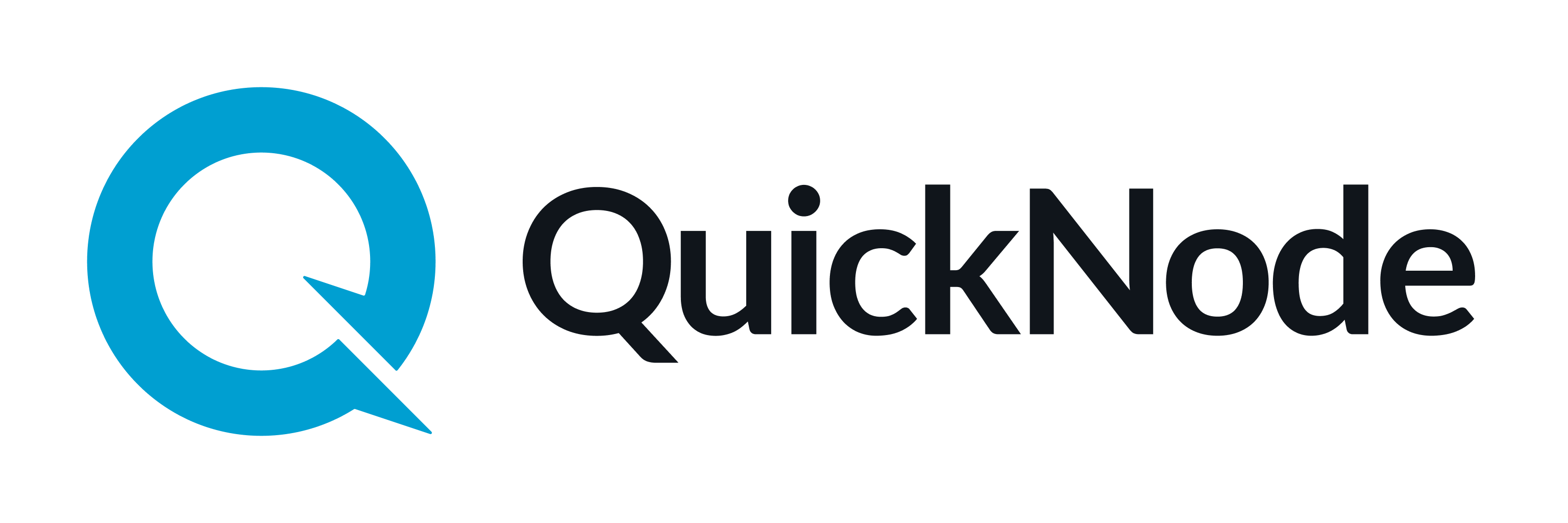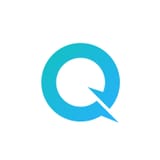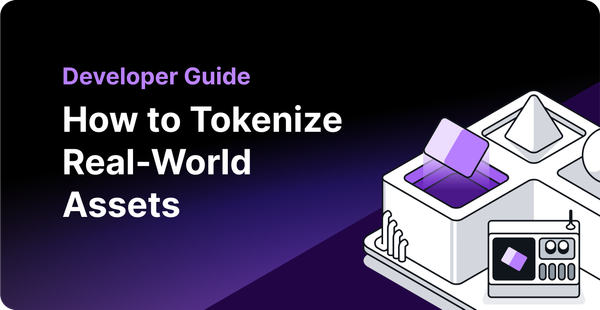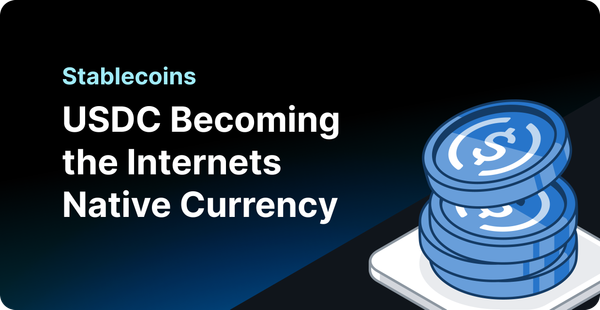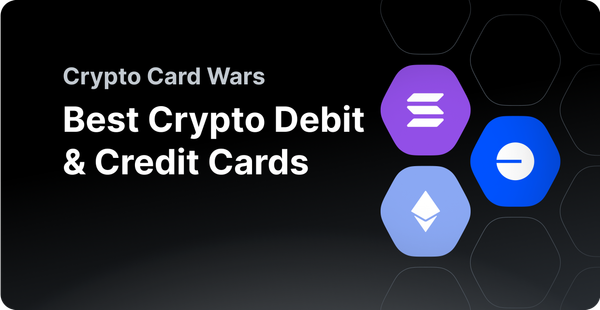Blockchain Applications in Healthcare Solutions
Discover the transformative role of blockchain in healthcare, from securing patient records to facilitating seamless data sharing and supply chain management.
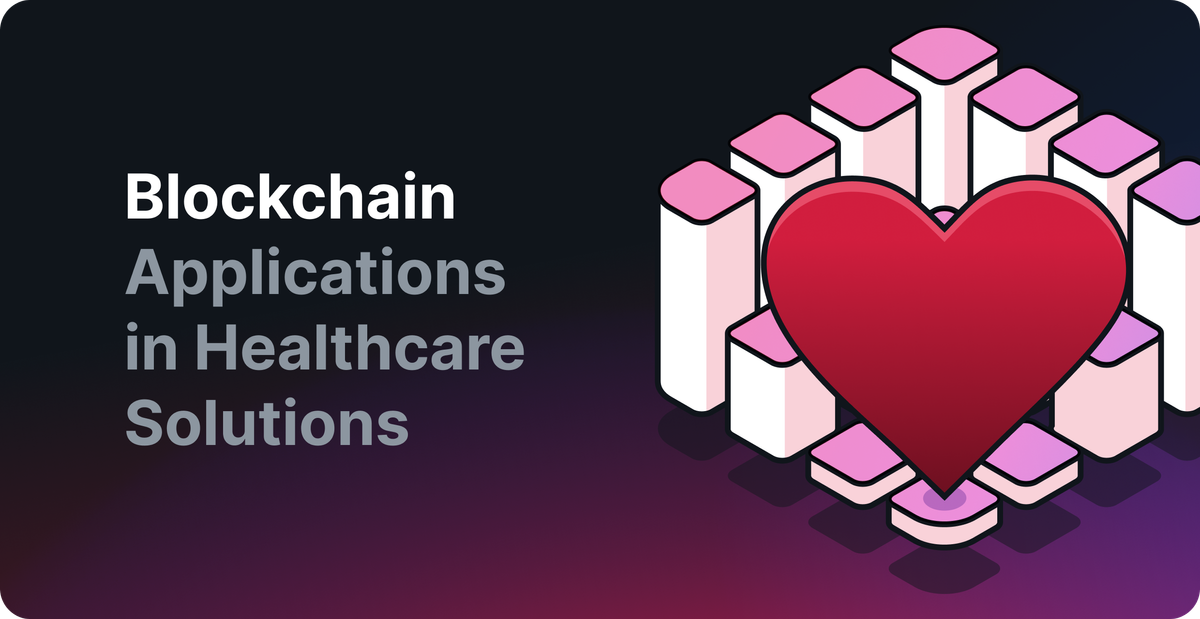
Imagine a future where patient medical records are secure, accessible, and seamlessly transferable between healthcare providers. Also, clinical trials are transparent and it’s possible to identify counterfeit drugs with accuracy.
This isn't science fiction – it's the promise of blockchain in healthcare, and it's already making waves. The blockchain healthcare market is expected to grow from USD 2.37 billion in 2023 to USD 19.52 billion by 2028.
But how is blockchain technology going to address the shortcomings of the healthcare industry? And how can blockchain be integrated into healthcare systems?
In this blog, we’ll delve into the applications of blockchain in healthcare and strategies that businesses can use to integrate it with existing solutions.
Primary applications of blockchain in healthcare
Blockchain technology promises more secure, transparent, and efficient ways to handle medical data and processes.
Here are five primary applications of blockchain in healthcare:
Patient data security
Blockchain enables distributed data storage of patient healthcare data — from diagnosis to medication to even insurance details.
Courtesty of blockchain, the patient’s healthcare data is unified, accurate, and easily accessible for various healthcare providers. Additionally, it revolutionizes public health data management, enhancing disease surveillance and epidemic tracking.
The encrypted state of patient data also helps in aligning with stringent privacy regulations like HIPAA.
Medical supply chain management
Blockchain brings highest levels of transparency to the pharmaceutical supply chain. It allows for end-to-end tracking of drugs, from manufacturing to delivery, effectively combating counterfeit medications and ensuring patient safety. Similarly, blockchain can help trace and track vaccine supply chains in real time.
This level of visibility also aids in regulatory compliance, recall management, and enhances the overall efficiency of the supply chain operations in healthcare.
Research and clinical trials
Inherently opensource nature of blockchain offers a secure and immutable platform for data collection and sharing. It ensures the integrity and reliability of clinical trial data, facilitating transparent and tamper-proof record.
This accelerates the pace of medical research aiding in the development of new treatments and medications. The credibility of blockchain records in clinical trial data can promote quicker and more transparent drug approvals.
Health insurance management
Integration of blockchain tech into healthcare insurance promises a new era of efficiency and transparency.
Smart contracts on blockchain can fasttrack policy enforcement and claims processing since the self-execute on predefined conditions. This also reduces logistical headaches, admin costs, and minimize disputes over claim settlements.
Similarly, blockchain can also facilitate portability of insurance between different healthcare systems and insurance providers. This simplifies patient care across different providers and regions.
Credential verification
Blockchain can store and verify the credentials, certifications, and educational qualifications of healthcare professionals, ensuring that only qualified personnel are employed. Credential fraud can be avoided. Even institutions can quickly and reliably verify the credentials of potential hires.
This also standardizes the credential verification aiding international healthcare workers. Additionally, blockchain can also record ongoing education and research contributions or renewals of licenses or certifications — making credential management simpler for healthcare professionals.
Blockchain-based applications in healthcare
Here are three blockchain-based platforms that are building solutions related to healthcare:
- BurstIQ: BurstIQ offers a blockchain-based platform called LifeGraph that enables healthcare companies to store patient data on-chain. Better known as patients’ digital DNA, LifeGraph provides a comprehensive view of patient health by integrating several health data sources.
- Medicalchain: Medicalchain employs blockchain to securely manage health records, aiming to create a smart, collaborative approach to healthcare. It provides patients the ability to grant and revoke access to their electronic health records (EHR).
The platform allows insurance companies to directly get in touch with the patients and their data and allows for personalized insurance packages.
Medicalchain also allows pharmaceutical and research companies to access a database of patients who have opted in for research, streamlining the process of patient follow-up and data collection.
- Avaneer Health: Avaneer Health is a true peer-to-peer healthcare network. It connects payers, professionals, and healthcare organizations to facilitate direct interactions and transactions with a transparent audit trail. Avaneer also provides enterprise-ready solutions and tooling for existing healthcare bodies to integrate their EHR with Avaneer’s open community.
Strategies to integrate blockchain into healthcare systems
Integrating blockchain technology into healthcare systems can be a complex process, but it can be broken down into manageable steps.
- Identify specific use cases: Determine the areas within the healthcare system where blockchain can be most beneficial. For instance, public health data management, pharma supply chain tracking, clinical trials management, etc, — all require different business and tech logic. Then, assess the needs and challenges in these areas to understand how blockchain can provide solutions.
- Comply with regulations: Understand and comply with healthcare regulations such as HIPAA in the USA or GDPR in Europe, especially regarding patient data privacy and security. Also, ensure compliance with healthcare standards like HL7, FHIR for data formats and interoperability.
- Develop or collaborate: Next is building the product or application for the use case. Building from scratch gives ultimate control and can be fast-tracked with developer tooling providers like Quicknode. Instead, collaborating with tech experts for technical know-how and best practices can be sensible too.
- Secure and private data storage: Storing data privately is of upmost importance in the healthcare space. Encryption of sensitive data and mechanisms for obtaining patient consent for data sharing are non-negotiable.
Alongside, maintaining transparency in how patient data is used and shared is also critical.
- Standarization: Standardized formats and protocols are needed while dealing with healthcare at a global level. It aids collaboration between various healthcare stakeholders, including hospitals, clinics, insurance companies, and research institutions.
Blockchain integration platforms specialize in providing blockchain infrastructure solutions that are tailored for easy integration with older systems.
They act as intermediaries, ensuring smooth communication and data exchange between the blockchain network and traditional IT systems by offering tools and services like API access, node management, and scalable infrastructure.
This method not only simplifies the process but also accelerates the adoption of blockchain, allowing healthcare entities to quickly benefit from enhanced security, improved efficiency, and robust data integrity that blockchain technology offers.
How to build healthcare solutions on blockchain?
The tech's nascency can be a challenge for healthcare applications. Additionally, the lack of reliability and scalability of blockchain networks can turn into a headache while building a healthcare solution.
However, there are ways to solve these challenges and build a responsive solution on blockchain.
Layer-2 solutions
Layer-2 (L2) solutions are secondary frameworks or protocols built on top of an existing blockchain networks, designed to improve transaction speeds and reduce costs. L2, courtesy of their improved throughput, are ideal for healthcare transactions like patient data exchanges, supply chain events, or payment processes.
Zero-knowledge proofs
Zero-knowledge proofs (ZKPs) are tools that enhance privacy and security in blockchain transactions. They are apt for healthcare applications where patient data and other records need to be private and secure, yet be verifiable. This is perfect when patient data needs to be shared among various parties like hospitals, insurance companies, and research institutions.
Decentralized storage
Decentralized storage systems are the anti-thesis of the status quo that is totally reliant on centralized databases. A distributed storage framework means the data remains accessible across a plethora of nodes, ensuring data reliability and free of censorship.
QuickNode provides tools and APIs that make it easier for healthcare systems to integrate with decentralized storage solutions like IPFS. Furthermore, its services are scalable and fast. This ensures that healthcare providers can access crucial data swiftly.
The future of blockchain in healthcare
The integration of blockchain technology in healthcare is not just a futuristic vision but a tangible reality that's unfolding today.
With its potential to revolutionize patient data security, streamline medical supply chains, enhance data sharing and interoperability, and optimize healthcare payments, blockchain stands at the forefront of healthcare innovation.
While challenges such as scalability, regulatory compliance, and integration complexity exist, the solutions are within reach in the form of layer 2 blockchains and blockchain integration platforms. So, the future of blockchain in healthcare looks promising.
We hope this article helps you understand the impact blockchain will have on the healthcare industry and discover how you can integrate blockchain solutions easily with existing infrastructure.

About QuickNode
QuickNode is building infrastructure to support the future of Web3. Since 2017, we've worked with hundreds of developers and companies, helping scale dApps and providing high-performance access to 25+ blockchains. Subscribe to our newsletter for more content like this, and stay in the loop with what's happening in Web3!
